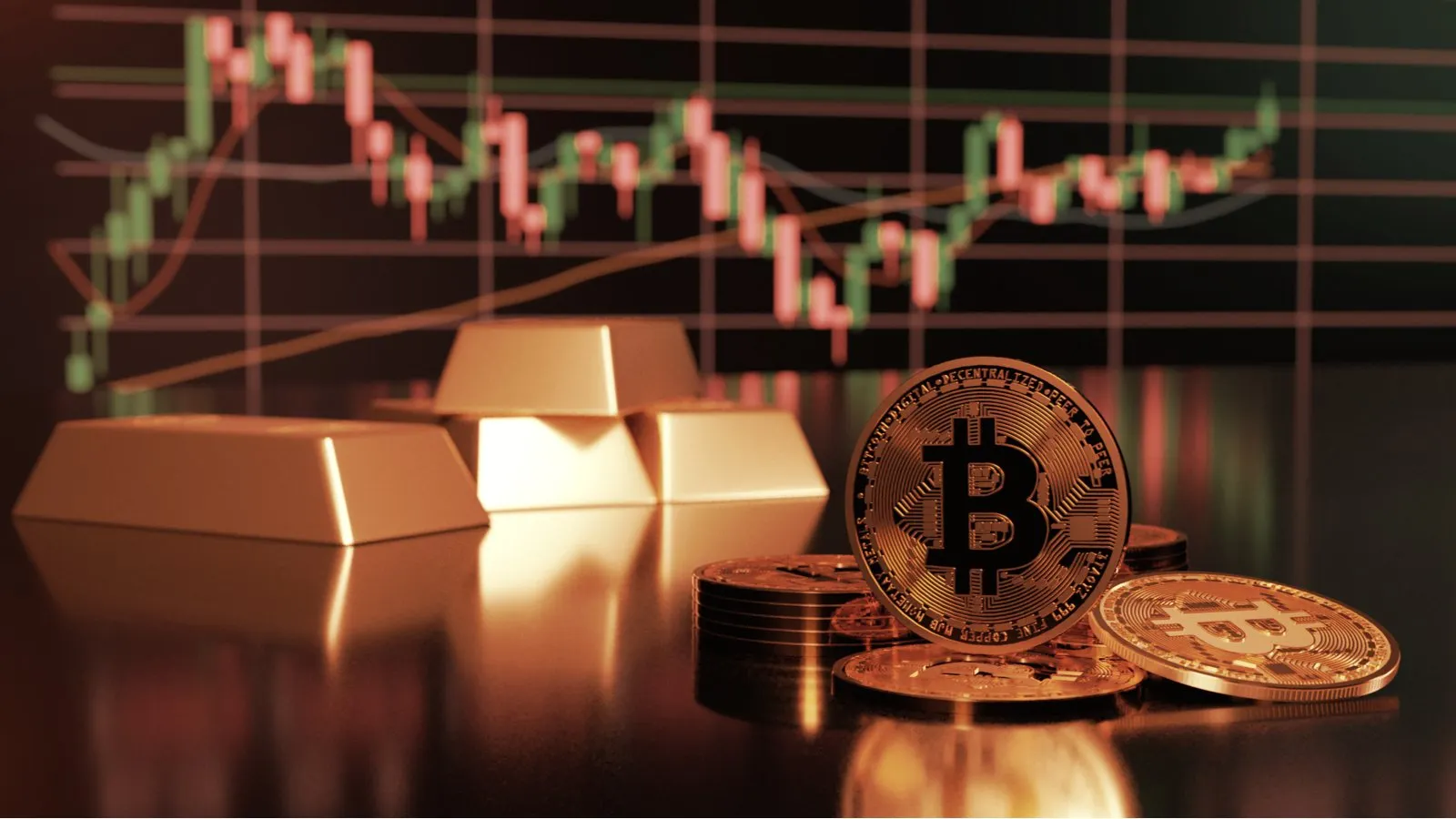Bitcoin's unique selling point for years has been that it is a safe-haven asset: Likened to gold—even referred to by some as "digital gold"—Bitcoin proponents have argued that the biggest cryptocurrency by market cap is what to invest in during market downswings.
But that narrative appears to be changing. Bitcoin, which right now has a market cap of $681 billion, has been closely correlated with equities since the 2020 bull-run.
Today, the entire cryptocurrency market lost $200 billion following Russia's invasion of Ukraine as investors get rid of riskier assets (including equities.) And Bitcoin, as the biggest and most well-known digital asset, is suffering: at the time of writing it was trading for $36,034.84, according to CoinMarketCap—a 5.2% dip in 24 hours.
So if Bitcoin is not performing well as a safe haven, which assets are? These investments seem to be fulfilling their functions of increasing in value during turbulent times.
Gold
Gold, the oldest safe-haven asset, is doing well. The price of it shot to a one-and-half year high following Russia's invasion: spot gold rose 0.9% to $1,923.86 per ounce, as per Reuters data.
The asset typically does well during times of geopolitical tensions. Incidentally, Russia currently has $635 billion in gold reserves, which it has said will protect it from sanctions.
Oil
Oil, too, surged following news of Russia's invasion—it hit a seven-year high: over $100 a barrel. This is because Russia is the second-biggest exporter of the commodity, and most of it runs through pipelines that pass through Ukraine. Uncertainty over future availability has pushed the price up.
"Black gold," as it is referred to by investors, has done very well since the pandemic, beating many other investments.
Metals
Metals, too, have risen today. Like with oil, Russia is a major producer of metals, so uncertainty and sanctions on the country could squeeze supplies and push the prices up. Prices for key non-ferrous metals rose 5% Thursday morning. Nickel, copper and aluminum are all doing well; the price of aluminum hit a record high of $3,450/mt.
Foreign currencies
A number of foreign currencies have the safe-haven asset badge and have done so for some time. This includes the U.S. dollar, which today responded well following Russia’s invasion. The greenback surged to $97.740 against a basket of major currencies—the highest since June 30, 2020, according to Reuters data. While the Japanese yen, long a safe-haven currency, and Swiss franc, also performed well.
Disclaimer
The views and opinions expressed by the author are for informational purposes only and do not constitute financial, investment, or other advice.
Daily Debrief Newsletter
Start every day with the top news stories right now, plus original features, a podcast, videos and more.

